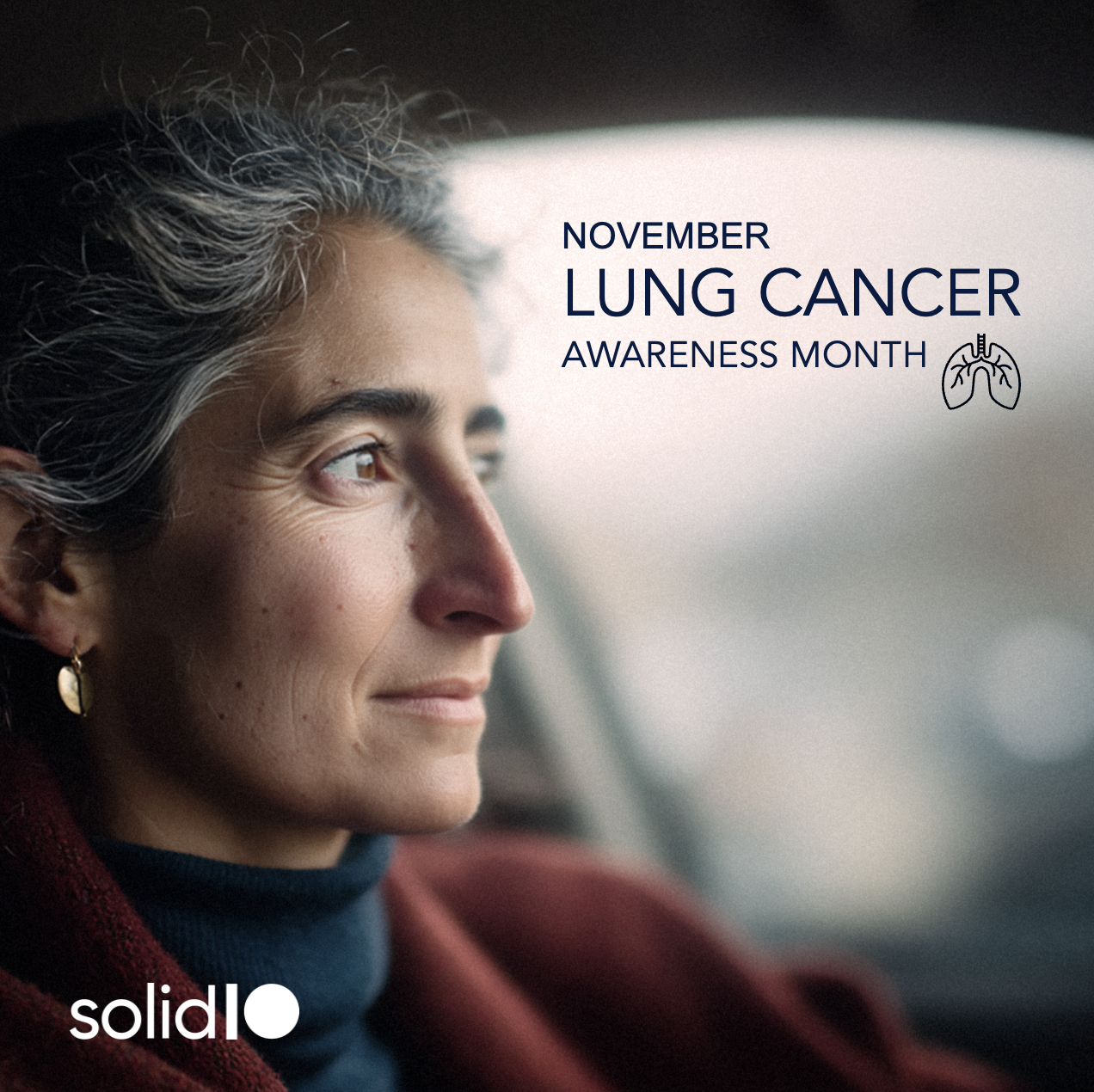
Lung Cancer Awareness Month – Confronting the World’s Deadliest Cancer
November marks the international Lung Cancer Awareness Month. Lung cancer is the leading cause of cancer-related deaths worldwide, with more than two million new cases diagnosed each year.
Approximately 85% of all lung cancers are classified as non-small cell lung cancer (NSCLC). Over the past decades, advances in targeted therapies and immuno-oncology (IO) treatments have transformed the management of NSCLC, prolonging survival and improving the quality of life for many patients. However, these therapies benefit only a subset of individuals. Many patients fail to respond to IO treatments, or their cancer becomes treatment-resistant after an initial response. The biological reasons behind this variability are still not fully understood, representing one of the key challenges in oncology today.
“Behind every lung cancer case lies a unique biological story. Our challenge is to decode these stories so that every patient can receive the treatment their tumor is most likely to respond to.”
- Heidi Haikala, PhD, MBA
Co-Founder and Chief Scientific Officer, Solid IO |Assistant Professor and Principal Investigator, University of Helsinki and Tampere University
Selecting the most effective treatment remains a daily challenge for clinicians. Despite considerable progress in recent years, accurately predicting who will benefit from a given therapy is still difficult.
“We meet lung cancer patients at defining moments. Understanding the biology behind each case helps the whole care team plan treatment more precisely and with greater confidence.”
- Ilkka Ilonen, MD, PhD, FACS, FEBTS
Chief Physician of Thoracic and Esophageal Surgery, HUS Helsinki University Hospital | Principal Investigator, University of Helsinki
From the perspective of pulmonary and interventional medicine, integrating biological and functional insights into clinical decision-making is increasingly critical to improving patient outcomes.
“The future of lung cancer care is rooted in precision. As we gain a deeper understanding of each patient's unique disease biology, we can offer more personalized treatment approaches. Incorporating functional insights into our decision-making processes is essential to achieve this aim.”
- Jaspal Singh, MD
Clinical Professor of Medicine and Associate Dean for Faculty Development, Wake Forest University School of Medicine | Assistant Director, Levine Cancer Center | President, Society for Advanced Bronchoscopy
As understanding of NSCLC deepens, the boundary between individual-level biology, drug development, and clinical care continues to narrow. New approaches, such as functional tumor–immune modeling, are beginning to connect these domains, enabling clinicians and researchers to work from a shared biological framework aimed at making treatment selection more precise, effective, and patient-centered. At Solid IO, we contribute to this work by developing patient-derived functional models that help bring the biological complexity of NSCLC into both research and clinical decision-making in immuno-oncology.
Lung Cancer Awareness Month is recognized globally as a moment to increase understanding, encourage collaboration, and support progress in care. For those working with lung cancer, awareness extends far beyond a single month. It is a continuous effort to understand the disease more deeply, refine treatment approaches, and improve outcomes for patients everywhere. Our deepest respect goes to all professionals and teams dedicated to this work every day.

Shape the future of cancer care
Join us in transforming cancer care with groundbreaking organ-on-chip technology. We’re calling on researchers, clinicians, and investors to partner with us in advancing precision medicine, accelerating innovation, and expanding global access to personalized oncology. Together, we can bring clarity and better outcomes to cancer care worldwide.
.svg)
